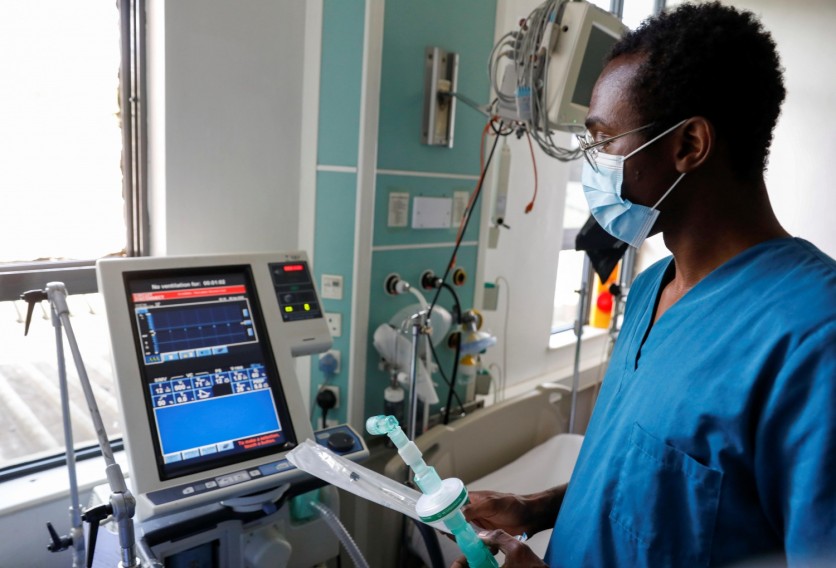As facts emerge at the spectrum of signs and symptoms as a result of COVID-19, it's clear that people with certain conditions are being hit harder. Obese and black people are as a great deal as four times as likely to die from coronavirus than other people, studies found.

Various researchers tried to pinpoint why some people with the illness don't make a deal while others end up on comas and on ventilators, if not dead. So, what explains this?
Obesity
Being obese may double the risk of seeking hospital treatment for COVID-19, according to a study.
While many people experience mild illness, 89 percent of COVID-19 cases had at least one continual circumstance. About half of them had high blood pressure and weight problems, according to the Centers for Disease Control and Prevention.
"Obesity is a marker for [several] other problems," explains Dr. Aaron Carroll, a public health researcher on the Indiana University School of Medicine. He told NPR one reason COVID-19 is taking its toll on humans who have weight problems is that their overall health is regularly compromised.
Prior research has proven that people with weight problems are less covered by the flu vaccine. People suffering from obesity tend to get sicker from respiratory diseases even though they've been immunized.
Researchers have discovered that as humans gain excess weight, their metabolism changes, and this shift could make the immune system much less effective at preventing off viruses.
"What we see with obesity is that these [immune] cells don't function as well,' says Melinda Beck, a health researcher at the University of North Carolina, Chapel Hill.
She told NPR weight problems adds fuel to the fire that immune cells need to function. "The [immune cells] are not using the right kinds of fuels," Beck says. As a result, the situation of obesity seems to impair that significant immune reaction needed to address both the virus infection or the ability to make a strong response to a vaccine.
Ethnicity
Black people are more than four times likely to die from coronavirus than white people, the U.K.'s statistics office said on Thursday.
Those of Bangladeshi and Pakistani ethnicity even have a significantly higher risk of death from COVID-19 than white humans, even when adjusting for deprivation, the Office for National Statistics (ONS) said.
"These results show that the difference between ethnic groups in COVID-19 mortality is partly a result of socio-economic disadvantage and other circumstances," ONS said. However, it said a remaining part of the difference has not yet been explained.
ONS told Al Jazeera the chance of death involving the coronavirus (COVID-19) among a few ethnic groups is significantly more than that of those of white ethnicity.
The CDC noted that 33% of people who have been hospitalized with COVID-19 are African American. Yet, most of 13% of the US population is African American. Some local groups noted a similar pattern in their data. Among the many states reporting racial statistics on COVID-19, blacks account for 34% of COVID deaths, according to John Hopkins University.
As Dr. Anthony Fauci of the National Institutes of Health told last week in a press briefing, the outbreak shines a light on how unacceptable African Americans suffer disproportionately in the disease.
Why them?
There are numerous factors, including some genetic ones, that may make the black humans and overweight are more prone to COVID-19.
"There have been a few studies that have pointed to genetic risk factors that make them more salt-sensitive," says Renã Robinson, a professor of chemistry who researches chronic disease at Vanderbilt University.
Poor nutrition, and the obesity connected to it, is a leading cause of premature death across the globe. And, this pandemic brings into recognition the vulnerability of the tens of millions of humans residing with health-related, persistent disease.
NPR reported that other aspects of racism could contribute to the elevated risk of having coronavirus for black Americans.
"Every major crisis or catastrophe hits the most vulnerable communities the hardest," said Marc Morial, president, and CEO of the National Urban League. He added black workers are more likely to hold the kinds of jobs that cannot be done from home.
ALSO READ : COVID-19: Your Open-Floor Office Could Help Spread Coronavirus, According to South Korean Experts
These factors, researchers said, may increase the chance of more blood pressure, which, in turn, is related to more serious cases of COVID-19.
ⓒ 2025 TECHTIMES.com All rights reserved. Do not reproduce without permission.




